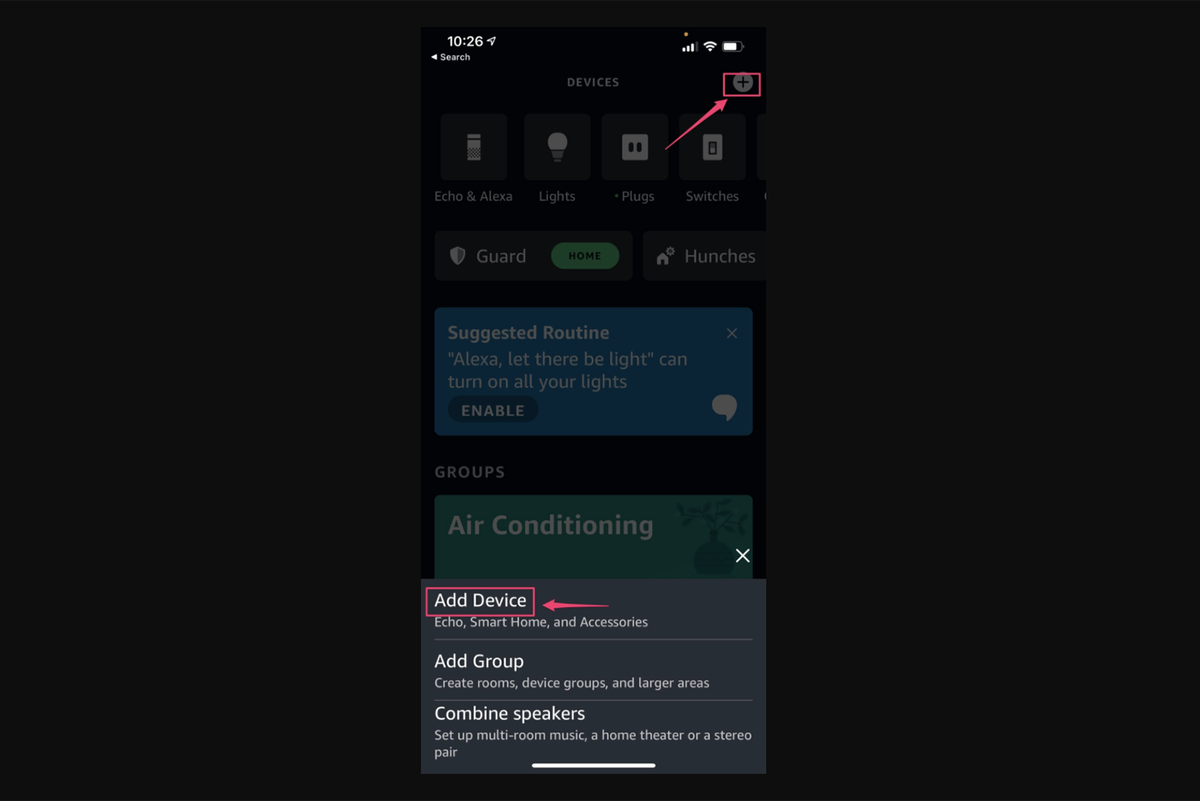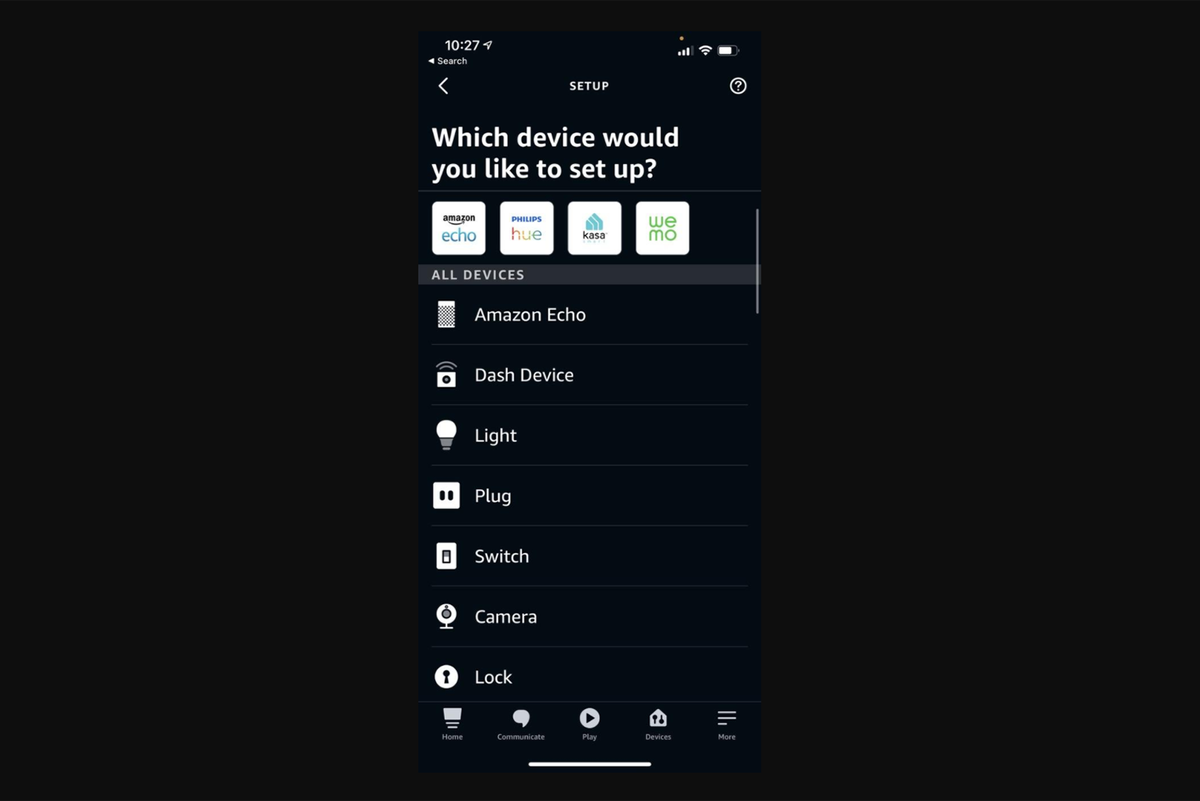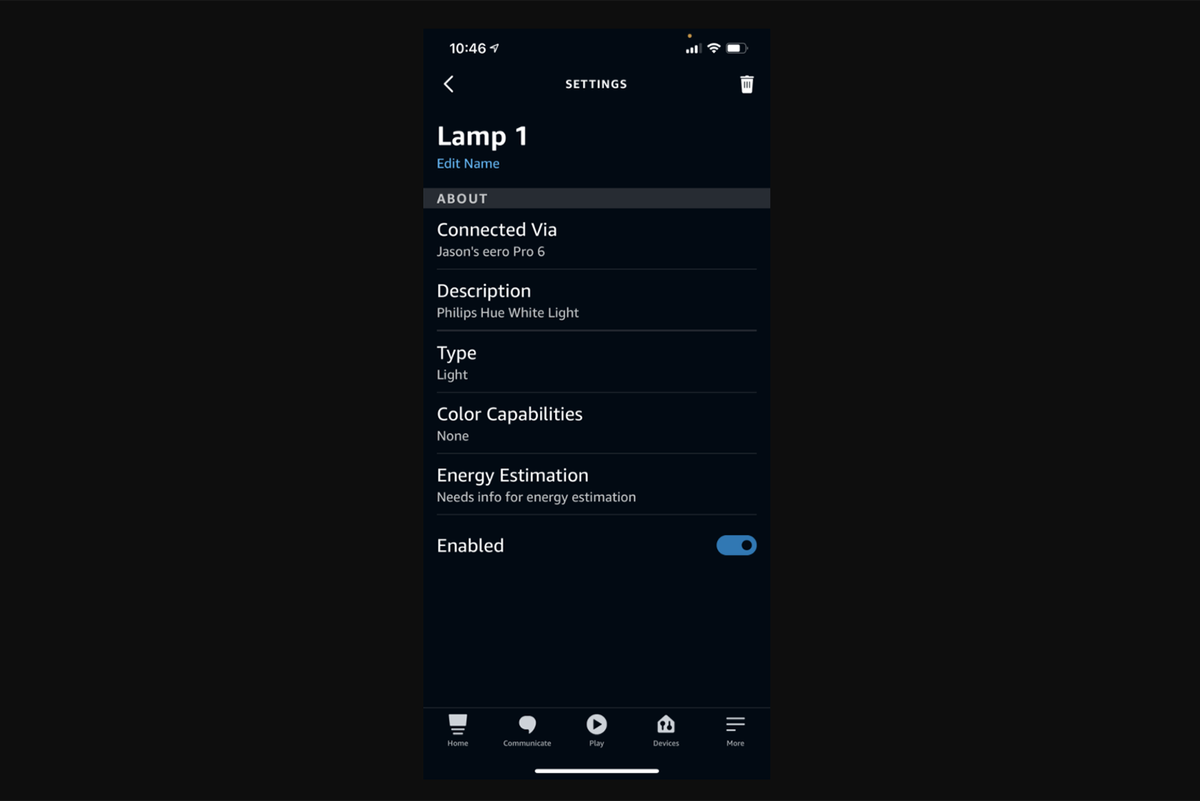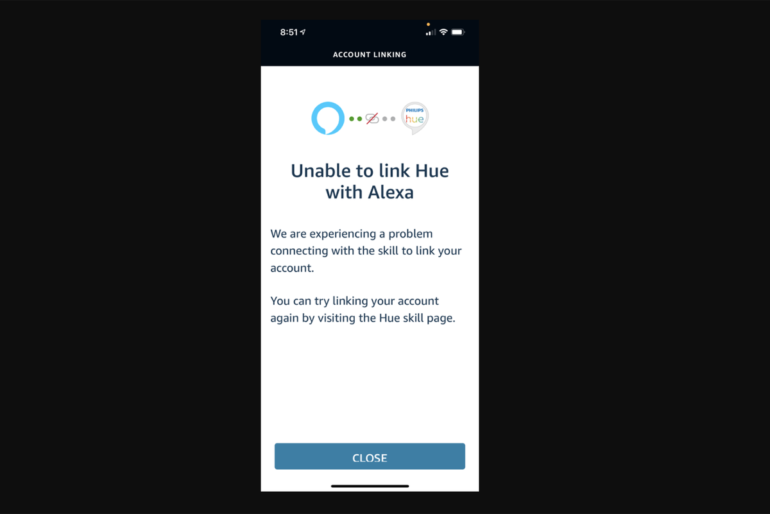When Jason Cipriani and I interviewed Tobin Richardson, president of the Zigbee Alliance, last week about the Alliance’s involvement in NASA JPL’s Mars 2020 mission, I didn’t think I would be applying its technology to my own personal use anytime soon. I had just finished converting my home to Lutron’s Caseta lighting system, which (currently) uses a different wireless standard. I also have a handful of Philips Hue bulbs that I use in various lamps around my home.
Last night, at around 11 pm, my wife told me that Alexa was no longer able to switch off any Hue lights. There happen to be a pair in use in my main bedroom as bedside lamps. Sure enough, after investigating the issue, it turned out that Philips Hue’s cloud service and Alexa skill got disconnected from my system.
After attempting to reset the skill and reconnect it to my Alexa, I saw this message:
The dreaded disconnection.
Jason Perlow/ZDNet
This is, of course, extremely frustrating when you’ve integrated all your lighting into a smart home system. Not being able to turn off your lights unless being done manually entirely defeats the purpose of that.
So, this morning, I dug into this a bit more. I opened up the Hue app on my iPhone, which I haven’t used in a very long time, only to set the bulbs up. Under the Hue app’s software version, I noticed that the Hub reported a Zigbee version number.
It suddenly dawned on me that if Hue hub is communicating via Zigbee, then, in theory, I should be able to natively connect the Hue bulbs to my Echo Gen 4 smart speakers — which, it turns out, you now can do. Eero Pro 6 Wi-Fi access points (as well as the Echo Show series of devices) also have Zigbee transceivers built into them, bypassing the need to use Hue’s app and hub entirely and without the need for additional cloud service integration.
Go native Zigbee on Alexa
To migrate your Hue bulbs (and smart plugs) to Amazon Alexa’s native Zigbee, you’ll want to open up the Hue app and remove your bulbs and other devices from the app. This will cause them to blink momentarily and put them in a factory reset mode. If you have another brand of Zigbee-compatible bulb, a smart plug, or other smart lighting device and are using them with another manufacturer’s Zigbee hub and cloud service, you’ll want to do the same thing and remove the bulbs from their app and set them back to factory settings.
Next, open the Alexa app on your smartphone or tablet and go through the “Add Device” procedure. Then, pick “Light,” “Plug,” or any other type of Zigbee-compatible device you want to add. If you have older models of Echo that do not have Zigbee built-in, such as a Gen 3 or Gen 2, or even a Gen 1, you also have the option of adding the vendor’s hub (providing it is one of the supported brands) to the Alexa network, bypassing the need for an additional cloud service. Hue’s hub can also be directly connected to Alexa if you choose to do so.


Use the “Add Device” sequence to add your Hue and other Zigbee-compatible bulbs to Alexa.
Image: Jason Perlow/ZDNet
The Alexa app will ask you to choose which vendor of device you want to add. If the manufacturer is listed, such as Philips, you can directly choose that brand. Otherwise, pick “other,” and Alexa will automatically recognize it after completing the discovery process.


You can directly add any number of Zigbee-compatible devices to the Alexa network without needed additional skill service integration, including control hubs for Philips Hue.
Image: Jason Perlow/ZDNet
After the discovery process is complete, you can now add the smart home devices to groups of your choosing, as well as disconnect the vendor’s hub from your network.


A Philips Hue lightbulb connected to Alexa via native Zigbee.
Jason Perlow/ZDNet
For folks like myself who have fairly normal needs with smart lighting — I only really turn them on and off and dim them as needed — this is an excellent way to simplify the device integration with your smart home system and gives you improved flexibility on buying new bulbs and devices provided they are native Zigbee supported. Be advised that while Alexa does support color modes and other scene controls, it may not be as granular or as sophisticated as what Philips and other vendors can do with their native apps and hub connectivity. So, your mileage may vary.



